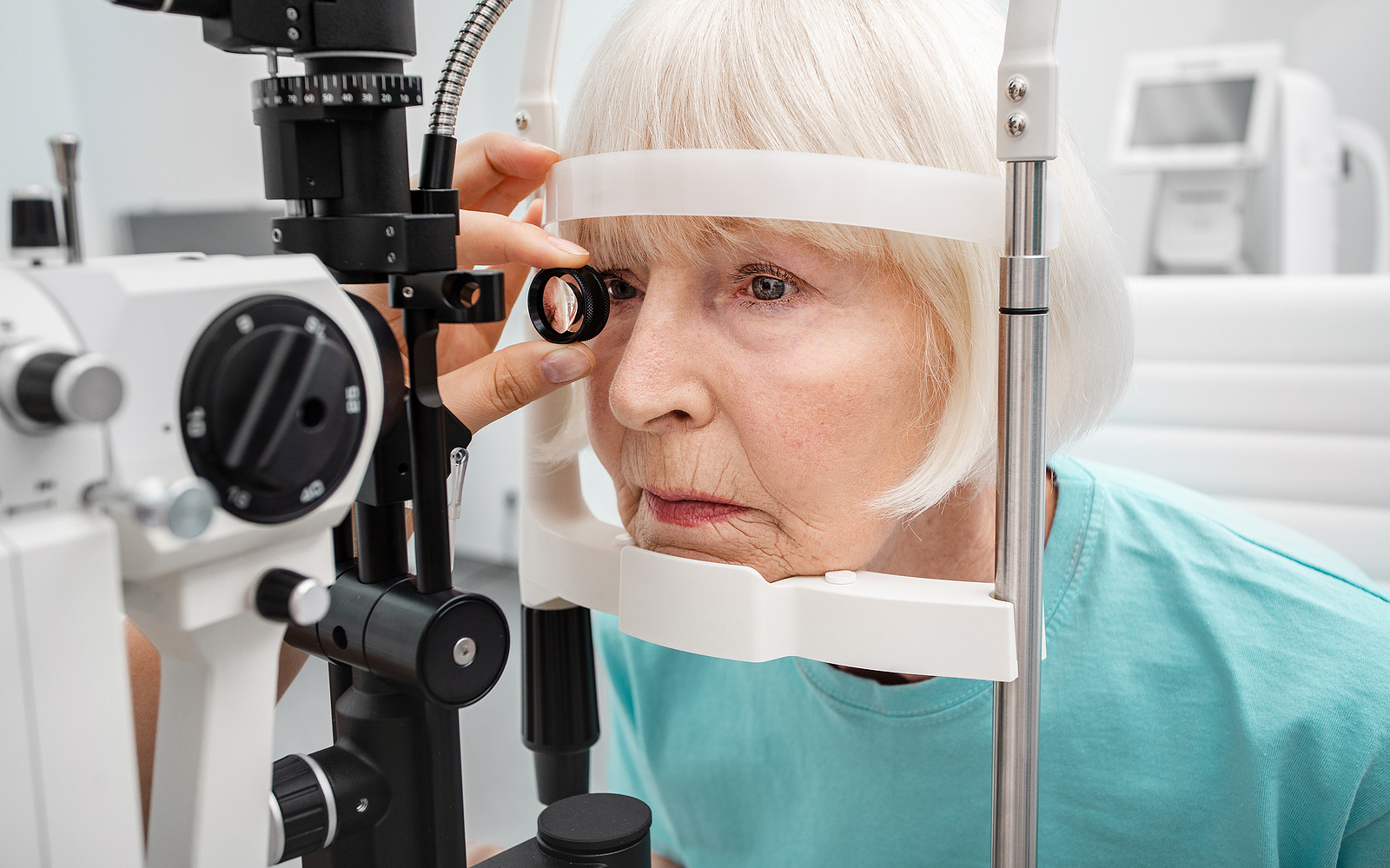How Genetics Impacts Your Risk of Age-Related Macular Degeneration

Could your genes hold the key to finding a cure for age-related macular degeneration?
Age-related macular degeneration, or AMD, is a progressive blinding disease that’s the single most common cause of vision loss over the age of 50. An estimated 10 million Americans suffer from age-related macular degeneration, and it’s estimated that in three years’ time, over 196 individuals worldwide will be affected by the disease.
Although AMD is widespread, its exact cause is unknown, and scientists have yet to develop a cure. However, researchers have identified some consistent risk factors, and genetics may be among them. This Age-Related Macular Degeneration Awareness Month, let’s dive into the relationship between AMD and genes — and how genes may hold the key to the condition’s cure.
How Genetics Can Predict AMD Risk
While a number of environmental and behavioral factors, including smoking, obesity, and excessive sunlight, can increase patients’ risk of developing AMD, studies show that age and a positive family history of AMD are the two strongest predictors of AMD.
There’s a fair amount of compelling evidence indicating that genetics play a major role in AMD. For example, a twin study performed by Hammond et al showed that identical twins were more likely to both develop the condition than fraternal twins. Similarly, several studies have demonstrated clustering of AMD in families, indicating the presence of a genetic factor.
In fact, 50% or more of AMD’s heritability has already been attributed to gene coding variations at chromosome 1q and 10q. Further, in a study of 43,566 subjects, 52 gene variants spanning 34 loci were shown to be related to the development of AMD, though only CFH, CFI, and TIMP3 reached genome-wide significance.
AMD Genetics May Lead to Future Treatment
As researchers’ insights into the link between genetics and AMD continue to unfold, it’s likely that the relationship between genetic variations and the disease mechanism will facilitate the development of new, effective AMD treatments.
Firstly, understanding the many different genetic variations that can contribute to AMD may allow for the possibility of more personalized AMD screening and treatment, which can help predict individual disease risk and identify individually significant therapeutic targets. It’s also possible that we will soon be able to predict individuals’ reactions to certain treatments and choose the safest and most effective treatments the first time, every time.
While this research is still in its early stages, it likely won’t be long before genes will play a much greater role in predicting and treating age-related macular degeneration. But until then, patients suffering from AMD can schedule an appointment with Swagel Wootton Eye Institute at our Mesa or Chandler locations. At Swagel Wootton Eye Institute, it’s all about you; we’re dedicated to helping you see more clearly and return to the activities you love, safely. Contact us today to learn how you can have healthier, clearer eyes.
[DISPLAY_ULTIMATE_SOCIAL_ICONS]








